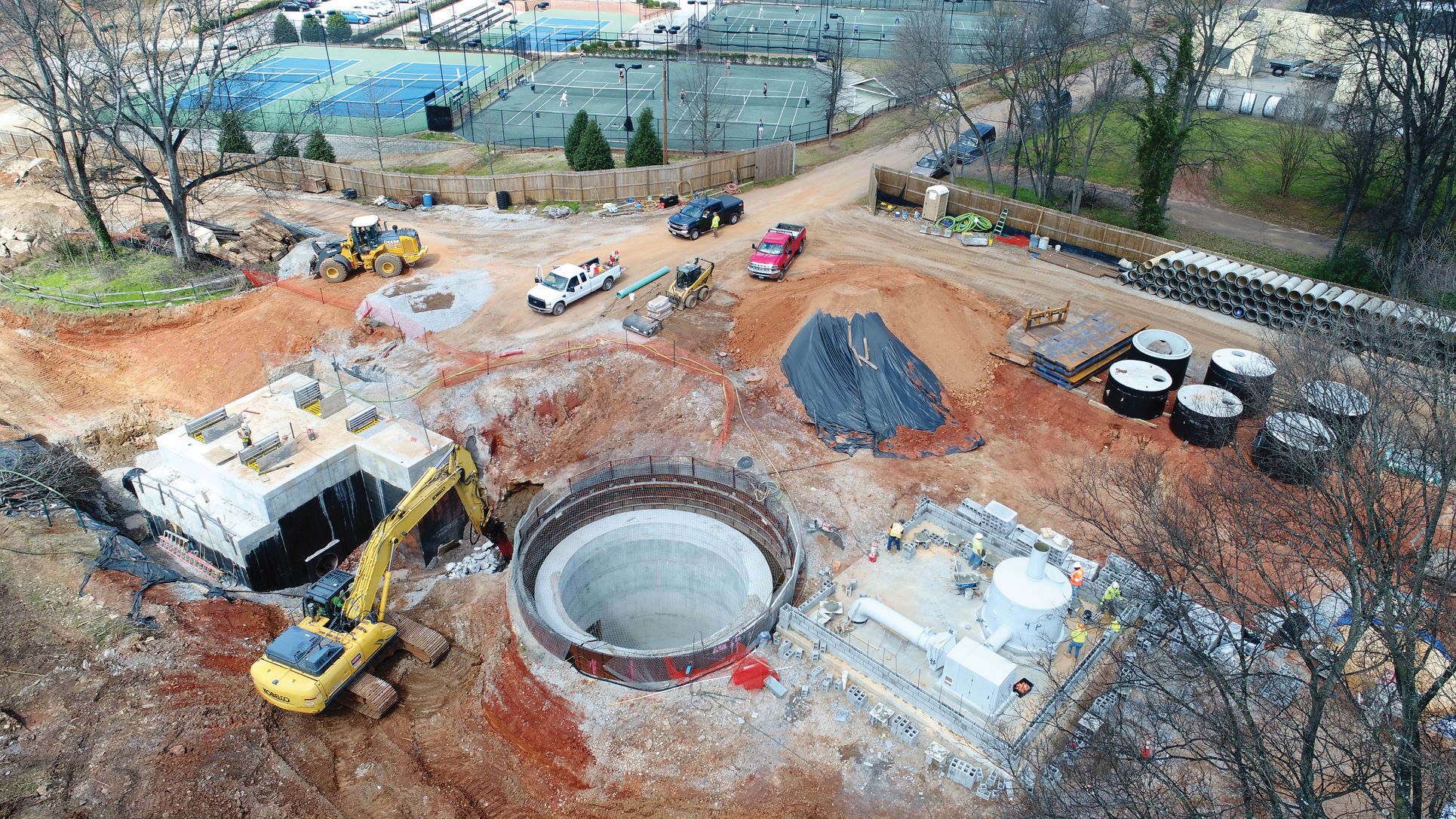By Liz Rosinski, senior program manager, SC Rural Infrastructure Authority
Last September, the American Society of Civil Engineers unveiled the 2021 infrastructure report cards for the nation and the states. In South Carolina the categories analyzed were drinking water, which received a D+, and wastewater, which received a D. The ASCE attributed these low grades to “decades of underinvestment, along with increased demand stemming from a booming population.”
It’s hard to estimate the total need for infrastructure investment in South Carolina. The ASCE report noted that some of the state’s infrastructure has recently undergone significant improvements that are not yet reflected in published data. However, the available indicators make it clear that the needs far outpace the available funds.
The Environmental Protection Agency conducted needs surveys in South Carolina in 2008 for sewer, and in 2015 for water. The estimated 20-year water and wastewater infrastructure needs in these surveys total over $7.7 billion in today’s dollars. This is widely considered to be an underestimate. In fact, the SC Rural Infrastructure Authority gathered current information on needs by surveying South Carolina water and wastewater utilities in 2021. Five-year capital needs, reported by only 20% of the systems in the state, totaled $1.8 billion.

Still, there is good news: the large and growing need for investment in infrastructure is taking center stage.
Two federal laws passed in 2021, the American Rescue Plan Act, or ARP; and the Infrastructure Investment and Jobs Act, also known as the Bipartisan Infrastructure Law, or BIL; both direct large sums to state and local governments for use on water infrastructure, among other purposes. Many cities and towns have already started planning upgrade and improvement projects using local ARP funds for water, wastewater and stormwater improvements. This funding presents a generational opportunity to address aging pipes, tanks, treatment plants and other infrastructure.
Currently, the BIL includes significant funding increases for both the Drinking Water and Clean Water State Revolving Fund loan programs, totaling about $120 million annually over the next five years. RIA and the SC Department of Health and Environmental Control jointly administer the SRF loan program. These funds are available for disadvantaged communities, as well as situations with emerging contaminants and lead service lines.
The state’s ARP allocation is estimated to be between $800 million and $900 million for competitive water, sewer and stormwater grants. The grant programs include capital improvement projects, regional solutions and planning grants for small systems. These programs will be administered by RIA, and final details will be announced by the agency on its website and email lists.
It’s important for water and sewer systems to get ready to access these funds for their community’s needs. The first step is to create, or update, a capital improvement plan that prioritizes funding needs. Think about how grant-funded improvements will be maintained over the long term. Consider transformational projects that will address critical long-term needs or lead to a more sustainable business model for utility services. Be sure to prepare up-to-date cost estimates, timelines and maps for key projects that reflect current pricing, potential material delays and any necessary right-of-way or easement acquisition. One important deadline to remember when planning: ARP funds must be expended by December 31, 2026.
This unprecedented funding also offers an opportunity to bundle and leverage the federal funds with local and other water and sewer financing programs to execute larger, more impactful projects. Navigating the various funding sources can be challenging. RIA is here to help local governments make the most of available federal and provide the technical assistance that South Carolina’s communities have come to expect from the agency.
Be sure to monitor ria.sc.gov for updates, and contact RIA at 803.737.0390 or info@ria.sc.gov with questions.
